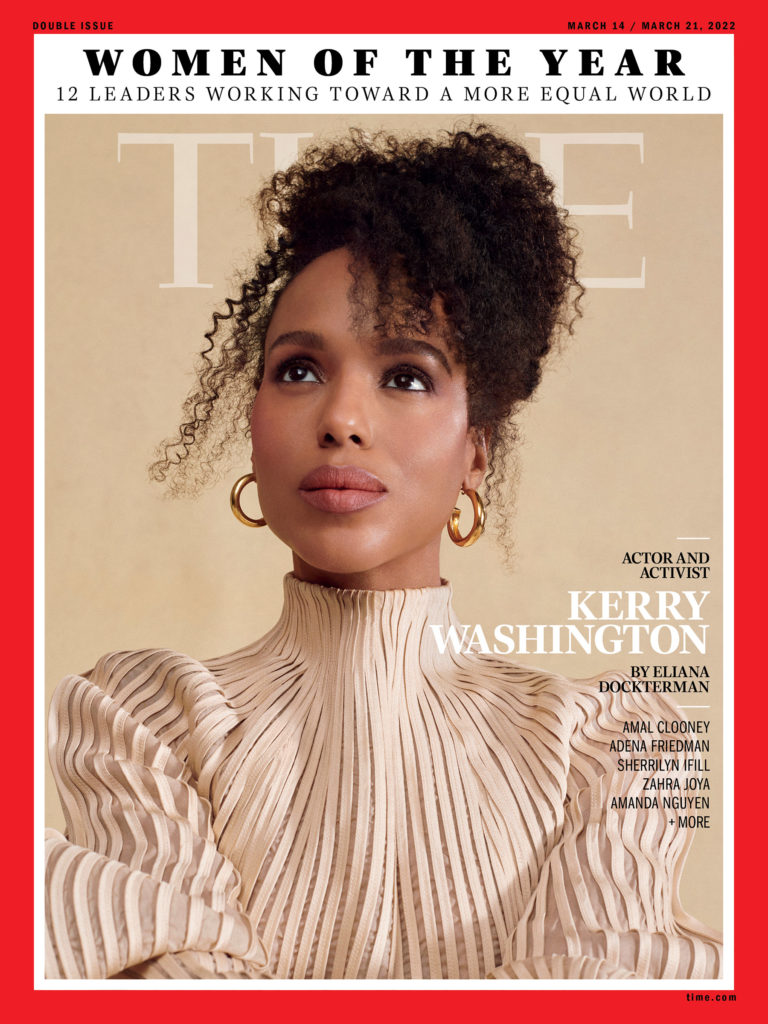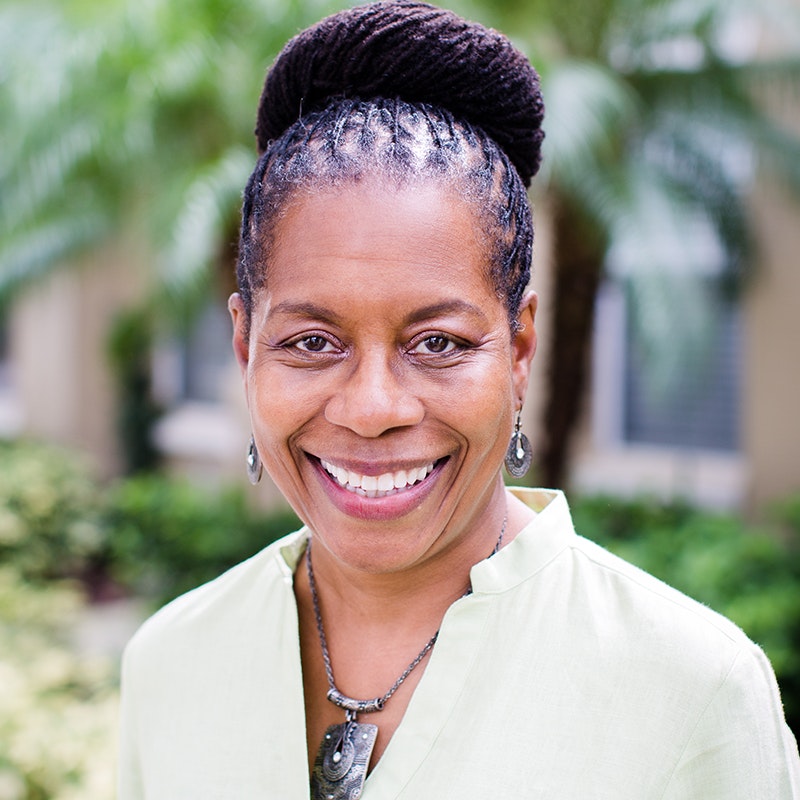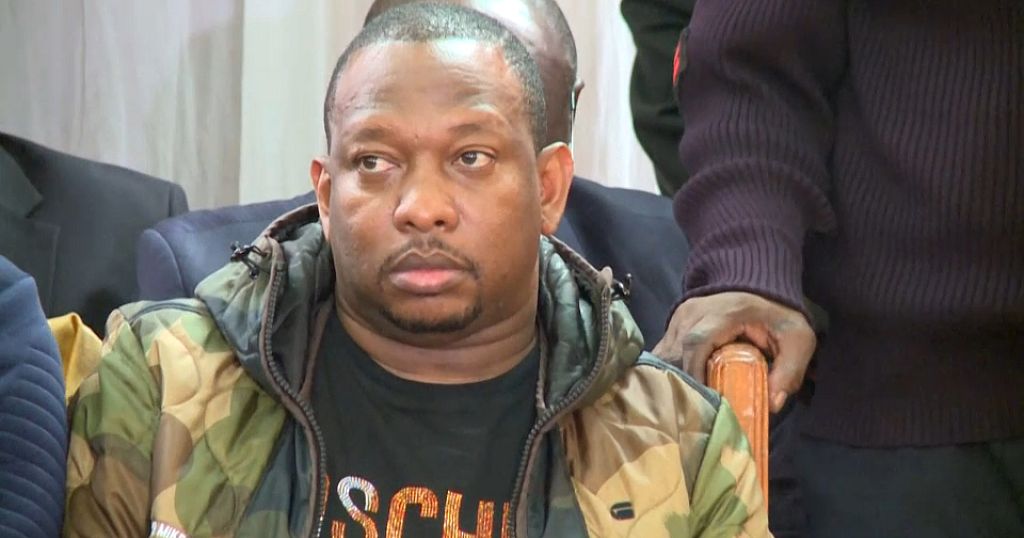Entertainment
TIME Magazine names 12 Women of the Year, 2022
Published
4 years agoon
[ad_1]
Leading American news magazine magazine, TIME has revealed its first ever Women of the Year list, honoring 12 leaders helping to create a more equal world. These women are creating a better future for women means building bridges—across generations, communities, and borders. These extraordinary leaders are working toward a more equal world.

The 12 women are: Human rights lawyer Amal Clooney, Afghan journalist Zahra Joya, US actress Kerry Washington, singer Kacey Musgraves, software engineer Tracy Chou, British midwife Jennie Joseph, poet Amanda Gorman, athlete Allyson Felix, Nasdaq chief executive Adena Friedman, lawyer Sherrilyn Ifill, civil rights activist Amanda Nguyen and trans actress Michaela Jae Rodriguez.
According to TIME magazine, the pandemic underscored the ways in which broken systems hurt women from rising domestic violence to disproportionate job losses. “When we sat down last fall to conceive a version of this project that could become an ongoing tradition, we chose to spotlight leaders who are working to create a better future for women everywhere. Our 2022 Women of the Year list features 12 individuals who have reached across communities, generations, and borders to fight for a more inclusive and equitable world.”
The 12 Women of the Year – Time 2022
Kerry Washington

Kerry Washington uses her star power to lend the spotlight to others, offering up funding, her Hollywood connections, and her storytelling expertise to 10 local organizations that are part of the Vision into Power Cohort, a program she set up in partnership with an arm of the Movement Voter Project to support grassroots organizations that empower marginalized groups.
She has invested in several women-led startups, like the health company Solv and the sustainable jewelry brand Aurate. And she runs a production company, Simpson Street, named after the street where her mother grew up in the Bronx. Washington cites her mother and four aunts, raised on that street, as the inspiration for the stories she tells. “They were the matriarchy of my childhood,” she says. Simpson Street focuses on bringing the stories of women of color to life with projects like the 2016 movie Confirmation, the 2019 film adaptation of the play American son, and the 2020 series Little Fires Everywhere.
Zahra Joya

Zahra Joya was 5 years old when the Taliban took power in Afghanistan and banned girls education. Undeterred, she dressed in boys’ clothing and walked two hours to and from school every day. After the U.S. invasion in 2001, she dropped her disguise, finished her schooling, and enrolled as a law student, before discovering her calling as a journalist.
Afghanistan has long been an extremely dangerous place to be a female journalist. According to Reporters without borders, 80% of women journalists have lost their jobs since the collapse of the Afghan Government in August. Joya, who founded Rukhshana media in 2020 with a focus on stories by and about Afghan women was among those forced to flee the country. She was airlifted to the United Kingdom. She spoke to me from a hotel in central London, where she and hundreds of other women and families are waiting for their asylum status to be confirmed.
Amal Clooney

Amal finds women in dangerous places around the world who want to challenge power, and she supercharges them with her own power: the law. Maria Ressa writes, “I know that because I’m one of them. Just for doing my job as a journalist, the authorities in the Philippines filed 10 arrest warrants against me in less than two years. Amal has helped defend me since 2019, and I’m a rarity for her because she can actually talk to me. In the past, her journalist clients were in prison, and she worked to free them by combining law with an incisive understanding of politics, pragmatism, and public advocacy.
What I’ve learned as one of her clients is that her empathy is as strong as her knowledge of the law and her courage. She’s also a hard worker, poring over thousands of pages of documents, highlighting, and taking meticulous notes. As she has often told me, you can’t do strategy if you don’t have the details. She knows my cases inside out, and many more too. When we spoke, she reeled off countless ones from memory: in Malawi, Darfur, Egypt, Myanmar, Azerbaijan, Tanzania, and more. She makes sure that women who are victims of mass atrocities, including genocide and sexual violence, are not forgotten, that they get justice, that their lives and communities are better as a result.”
Kacey Musgraves

Kacey will say the thing you might be thinking but would never voice out loud: sometimes marriage means insecurity; it’s easier to get high than to talk through conflict; life would be better if we could go back to being kids.
The genre-blending artist, who grew up in Golden, Texas, and made her way to Nashville, has managed to carve her own path in an industry that rewards women for replicating the looks, sounds, and messages of existing stars. She launched her career in 2012 with the single “Merry Go ’Round,” about the oppressive expectations of small-town life. Two country albums and a Christmas record later, Musgraves reached new heights in 2018 with Golden hour, her GRAMMY winning smash album that told the story of falling in love with her then husband—only to go through a divorce and put out the Shakespeare-inspired heartbreak record Star-Crossed last fall.
Tracy Chou

As an Asian American woman, Chou often found herself in environments that felt alienating. On Twitter, though, she could connect with a broad community of allies, engage with the world around her, and occasionally air her frustrations at racism and sexism in Silicon Valley and beyond. But as her Twitter following grew, so did the abuse. It ranged from what she calls “drive-by trolling,” including sexist or racist slurs, to a couple of persistent stalkers who supplemented online abuse with real-world harassment, with one even following her from London to San Francisco, she says. It got to the point where anytime she checked Twitter, Chou risked exposing herself to something that made her feel unsafe.
She wasn’t alone. From 2014 to 2020, the share of Americans who experienced sexual harassment online doubled from more than 5% to 11%, and those who were targeted by physical threats doubled from 7% to 14%, according to a recent Pew Research Centre report. Women were also more likely than men to have experienced “extremely” or “very” upsetting forms of abuse, and minorities were more likely to have been abused because of their race or sexual orientation.
Allyson Felix

A growing community of Black women athletes—like Serena Williams, Naomi Osaka, and Simone Biles are speaking openly about urgent issues like mental health, maternal health, athlete safety, and equal pay. “When you speak your truth, things happen,” says Felix, who takes inspiration from her peers. “You draw power from one another.”
The culture of Saysh is important to Felix. In 2019, she wrote an op-ed for the New York Times alleging that Nike, her sponsor, wanted to pay her 70% less after she had a child. She called out an industry “where the rules are still mostly made for and by men.” That’s why, when building Saysh, a strong paretal leave policy was a top priority. Felix wanted to give her employees, and herself, options. After talking with her staff, Felix landed on four months of fully paid parental leave, plus a two-month transition period at part-time status (and overlap with their replacement hire), a new-parent stipend, and postpartum mental-health resources. And, as a company founded during the pandemic, it has a hybrid work from home policy. “For someone like me, who has come from an individual sport,” Felix says, “it has been really exciting to be deeply collaborative with other people.”
Amanda Nguyen

In 2016, Amanda celebrated a major victory when President Obama signed the Sexual assaults’ Survivors Rights Act into law. Helping to craft the legislation, which reforms the handling of sexual assault evidence collection kits on the federal level, was her way of fighting back after learning in 2013 that her own rape kit was set to be destroyed. The CEO of the nonprofit civil rights organization Rise didn’t stop there; Nguyen 30, has gone on to help establish similar laws in 40 states to date, and has taken her movement to the U.N., where she’s leading an effort to pass a resolution that would protect survivors around the world.
Amanda Gorman

For Amanda Gorman, the hardest part of writing poetry isn’t mastering rhythm or conjuring powerful images. Those things come naturally to the writer, who became the youngest Inaugural poet in U.S. history last year. No, the hardest part of poetry, Gorman says, is letting herself speak at all. “Girls have spent so much of their lives being told to be seen and not heard, and you can see how they might bring that fear to the page,” she says, speaking from her home in Los Angeles. “So the core aspect of any conversation I have with someone who wants to start writing is: How do you stare at the monster of fear, know that it’s there, but not let it take up so much space?”
Gorman, 23, was lucky enough to have the “seen and not heard” message debunked early by a mother who monitored the messages she and her twin sister were consuming. When they would watch episodes of America’s Next Top Model, their mom would pause the show to break down the gender politics at play. A speech impediment that Gorman lived with until she was 20 also helped her gain the confidence to speak up she says. She noticed how high school and college classmates would speak over her, and she understood that it wasn’t a reflection of her intelligence or worth. “It was actually occurring at this cross section of my gender, my race, and my disability,” she says.
Adena Friedman

Adena grew up hanging out at the trading desk at investment firm T. Rowe Price—her father’s workplace—and calls herself a “big believer” in the power of capitalism. But it’s become evident, she says, that capitalism isn’t easily accessible to all. Less than 3% of venture capital in the U.S. goes to women led companies and only 1% to Black and Latinx founders. Friedman believes Nasdaq, the exchange founded in 1971 to expand access to financial markets, has a role to play in ensuring “capitalism works for everyone.”
In December 2020, Nasdaq proposed that its listed companies be required to disclose diversity data about their boards of directors. Those companies without at least two “diverse” directors—one who self-identifies as a woman and one who self-identifies as an underrepresented minority or LGBTQ+—would have to explain their lack of diversity. The proposal won regulatory approval in August.
Sherrilyn Ifill

In January 2019, four Black and Latina girls were walking down the hallway of their middle school in Binghamton, N.Y., laughing, when their principal stopped them. He brought the 12-year-olds to the school’s health office where, one by one, they were given sobriety tests and searched, alleges a lawsuit filed on behalf of their parents by the NAACP Legal Defense and Educational Fund (LDF). The school denies the allegation of inappropriate searches, as well as the premise of the litigation: that racial and gender bias led school officials to read playful behavior as suspicious. The case, which is ongoing, is emblematic of LDF’s work under its president and director-counsel, Sherrilyn who has strived to emphasize gender equity’s significance in the fight for racial justice and education access.
For nine years, Ifill has helmed the storied civil rights group with an intersectional focus. “All of our work affects Black women and girls,” she says. Ifill oversaw a huge expansion of LDF, nearly tripling the staff, and she cemented it as an essential player in battles over voting rights, police reform, criminal justice, and more—hoping to ensure the 81-year-old organization stays as influential in this century as it was in the last.
Jennie Joseph

Treating her patients well is not the only reason that Joseph has become one of the pre-eminent advocates of—and a national role model for—midwifery in the U.S. Her philosophy, which she calls the “JJ Way,” is much more ambitious. It’s about leveraging the power of midwifery to support a pregnant person before and after they give birth, to draw on community-based care, and to avoid unnecessary interventions. And it’s about using those methods not only to provide the best possible care for individuals, but also to disrupt a system that Joseph says has led to racial and socio-economic disparities in Maternal health care.
“There’s the calling to midwifery. It’s been my entire life,” she says. “Because you cannot stand by and tolerate injustice. Not when you’ve found ways that do actually make a difference.”
Joseph, 62, also has plenty of reasons to be hopeful. The culture around midwifery in the U.S. has begun to shift, driven in part by COVID-19, which overwhelmed hospitals and renewed interest in alternative ways to give birth and in part by the advocates like the Congressional Black Maternal Health Caucus, which has succeeded in pushing legislation to improve maternal health. Last spring, Congress voted to allow states to extend Medicaid coverage for mothers up to one year after they give birth, and last fall, President Joe Biden signed the first bill in a package that would invest in studying and addressing racial disparities in maternal care.
In 2020, she became the first Black person in the U.S. to privately own a nationally accredited midwifery school, where she is increasing the ranks of Black midwives, training other health workers around the country in midwifery principles, and developing a national network of like-minded providers.
Michaela Jaé Rodriguez

In January, Michaela Jaé Rodriguez made history as the first trans actor to win a Golden Globe. The 31-year-old won best actress in a TV drama for her role as house mother Blanca Evangelista on Pose, the FX series about New York City’s ’80s and ’90s ball scene. Just six months earlier, Rodriguez had also broken barriers by becoming the first trans woman to earn an Emmy nomination in a lead acting category.
This recognition means more to the actor than adding trophies to her shelf. Rodriguez, who proudly identifies as an AfroLatina trans woman, has long felt the scarcity of role models who look like her in Hollywood. Rising to the top of her field is validation of the change she’s striving to make. “When I was younger, I didn’t have representation for anyone of color in the LGBTQI community,” she says. “Now, I want to be the example. I want to show them that it’s possible.”
The show, which closed with a moving finale last summer, solidified for Rodriguez that equity is possible. “People have this idea of how trans women of color, trans women, and women in general are supposed to navigate this world. I want to break that down,” she says. “I want people to see what I am before I’m trans, before I’m Black, before I’m Latina. I want people to see I’m human.”
(pictures and excerpts courtesy of Time Magazine)
[ad_2]
Source link
Comments
You may like

How the Government Sank Sh49.5 Billion Into Housing Projects Without Land Ownership

Magoya Boils! CS’s Choice Moses Omondi Cornered by Angry Ugunja Youths

From Ivory to Rhino Horn: How Feisal Mohamed Ali Keeps Escaping Justice
Githunguri MP Gathoni Wamuchomba Denies Claims of Spying for UDA

A New Hope in Ugunja: Lillyanne Aketch’s campaign is shaking up the by-election.

Kalonzo Musyoka Dismisses Claims of Stepping Down from 2027 Race: “I Know My Enemies Are Suffering”

Kalonzo Musyoka Dismisses Claims of Stepping Down from 2027 Race: “I Know My Enemies Are Suffering”
Githunguri MP Gathoni Wamuchomba Denies Claims of Spying for UDA

A New Hope in Ugunja: Lillyanne Aketch’s campaign is shaking up the by-election.

From Ivory to Rhino Horn: How Feisal Mohamed Ali Keeps Escaping Justice

How the Government Sank Sh49.5 Billion Into Housing Projects Without Land Ownership

Magoya Boils! CS’s Choice Moses Omondi Cornered by Angry Ugunja Youths
Rayvanny officially leaves Diamond’s WCB Wasafi after 6 years
Raila Odinga is the most popular presidential candidate, a survey released by Infotrak
Newly-crowned Kenyan Wimbledon champion Angella Okutoyi would like to play against American star Serena Williams

The Mombasa High Court has ordered IEBC to clear Sonko to run for the Mombasa governorship.
Trending
-

 General News2 days ago
General News2 days agoHow the Government Sank Sh49.5 Billion Into Housing Projects Without Land Ownership
-

 General News3 days ago
General News3 days agoMagoya Boils! CS’s Choice Moses Omondi Cornered by Angry Ugunja Youths
-

 General News2 days ago
General News2 days agoFrom Ivory to Rhino Horn: How Feisal Mohamed Ali Keeps Escaping Justice
-
General News1 day ago
Githunguri MP Gathoni Wamuchomba Denies Claims of Spying for UDA
-

 General News1 day ago
General News1 day agoA New Hope in Ugunja: Lillyanne Aketch’s campaign is shaking up the by-election.
-

 General News7 hours ago
General News7 hours agoKalonzo Musyoka Dismisses Claims of Stepping Down from 2027 Race: “I Know My Enemies Are Suffering”
